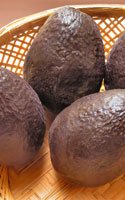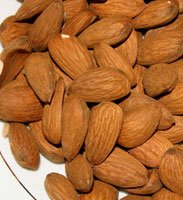Losing weight comes down to some simple math:
- Current Weight = Food Into Mouth - Food Burned Off
We need this number to be negative (i.e. we burn off more food than we eat).
Because your body is using more fuel than you are eating, it has to get it from somewhere else, which it takes from your body!
In order to lose weight, we need our caloric intake to be negative. There are 2 ways to do this:
- Increase food burned off (i.e. exercise)
- Decrease food into mouth (aka what most people call a 'diet')
The biggest mistake people make in trying to lose weight is not eating. This is not a good idea!
"Why," I hear you scream?
By not eating we reduce 'Food into mouth' and therefore decrease weight, right?
Yes, and no.
The weight you lose first is water, which is why people often find they lose pounds easily early on in a diet, after which they struggle to shift the pounds.
Not eating also puts your body into starvation mode, in which it stores fat. Read that again. Stores fat. This is not what we want. The reason it does this is because fat holds more calories per gram than carbs or protein, so the body holds onto it, knowing if we are reduced to starvation, it will 'eat' off the easy stuff first (carbs and protein, 4 calories per gram) and leave the fat till last (9 calories per gram).
So, we can't not eat, but what can we eat?
Ah ha! Before we look at what to eat, we need to look at timing...
Meal Timing
The first stage is to increase metabolism. Now metabolism basically relates to how fast your body breaks down food into energy for your muscles. Someone with a fast metabolism is the skinny-rake looking person who eats 50 times a day and still looks like they could do with a few more steak and kidney pies.
A slow metabolism on the other hand, relates to someone who eats only a few meals a day, but can't seem to shift any weight. Any extra increase in calories, such as a cheeky McDonalds will certainly lead to a gain in fat.
Why does this matter? Well firstly, increasing your metabolism will allow you to burn more fat at rest. That's right, doing nothing, burning fat. Sounds good right?
Well, most people make the mistake on their diets of, '3 solid meals a day'. I constantly hear people saying, I only eat 3 meals a day and look at the size of me. This is because your poor body has to survive 24 hrs (including the time you sleep) when you feed it only 3 times!
These meals tend to be huge meals, which decrease the rate at which your body can break it down (metabolism).
By breaking your meals down into smaller portions, allows you to eat more frequently. What this does, is increase your metabolic rate (aka metabolism) so that it burns through the food faster. Because your body knows it's getting food again in a few hours, it will burn through the current set a lot quicker than if you starve it by feeding it 3 times a day.
I recommend eating 6 or 7 smaller meals throughout the day to send your metabolism into overdrive! This may seem like a chore at first, and even difficult, but you are not reading what I've written. I said eat more MEALS, NOT more FOOD.
Just because you are eating more meals we still need to make sure we have a calorie deficit to lose weight. By cutting your '3 a day' meals in half and eating 6 meals a day, you will increase your metabolism to help burn fat at rest.
What Do We Eat?
Now we have discovered how to time meals. What exactly do we eat.
As long as we made sure we have a calorie deficit, we can be a little bit more relaxed with the foods we consume. Not all of us are bodybuilders!
However, that doesn't mean you can reach for the cookie jar just yet. Eating cakes, buns, chocolate washing down with a bottle or wine or a case of beer may seem like fun at the time, but your body won't thank you for it.
As I go through each macro-nutrient breakdown, it is important to read this with an impartial view. The media wants you to believe Victoria Beckham can gain/lose weight at the click of her fingers by eating Acai berries. They want you to believe that carbs are bad and that fat makes you fat.
They are wrong. They will write whatever they think will make you say, 'oh, I think I'll try that'. Don't.
Two points I want to get across here. Women especially, listen up!
- Carbs are not bad.
- Eating fat does not make you fat.
Let's Start With Carbohydrates
And first up is the ever so popular sugar.
Sugar, is not your friend. Sugar found in those oh so lovely cakes, is a carbohydrate in its simplest form (i.e. the body doesn't have to work very hard to turn it into energy to be used to go about our daily activities). Sounds too good to be true? It is.
The body will use this sugar very quickly and is great for a very short term burst of energy. But too much sugar when you are not in need of it, just stores the sugar in your body. The body is very efficient, and if it doesn't need the sugar for energy, it will store it for a later date! Excellent for your body, not too good for beach look.
So if Mrs. Jones sits at home eating 3 or 4 iced buns or 2 bars of chocolate with 4 glasses of wine, all this sugar enters the body, which uses some of it to turn the TV channel, but takes the rest and stores it as fat. No more so than late at night.
At night, your metabolism reduces so that it can last the whole night without food. So any food consumed late at night not needed by the body is stored as fat. Not good. It is a good idea to reduce your carbohydrate intake in the evening when the body does not need such a large amount of energy.
A quick note on alcohol. Alcohol contains empty calories (i.e. calories that contain no nutrients). They do however, contain 7 calories per gram! So they are on the wrong end of the scale when the body is looking for fuel. Hence why they sit on your body, mostly around the stomach area! Best bet is to reduce the amount of liqueur you consume or cut it out. It's just not going to help you shift the weight.
Other bad carbs (known as simple carbs), which are broken down easily by the body and get stored as fat easily, are:
- White Bread
- White Rolls
- French Bread
- Cakes
- Chocolate
- White Rice
- White Pasta
- Cocoa Puffs
- Chips
- Mashed Potato
Now, carbohydrates which take longer to be broken down by the body are known as complex carbohydrates. These take longer to be broken down, which in turn keep you fuller, for longer. Just what we're looking for when we're trying to lose weight.
Good carbohydrate foods are:
- Brown Bread
- Brown Rice
- Brown Spaghetti
- Sweet Potatoes
- Brown Pasta
Fibrous carbohydrates are also broken down slowly and act more as a cleanser for your digestive system. Consume fibrous carbs by including more asparagus, broccoli, carrots, green and red peppers, spinach and lettuce in your meals.
Next Up Is Fat!
Let me re-iterate. Eating fat will not make you fat. Abusing bad foods will.
Fat can be split into good and bad.
The bad fats are:
Saturated Fats
Found in animal products (meat, seafood, whole-milk dairy products—cheese, milk, and ice cream— poultry skin) and is solid and waxy at room temperature. It is important to limit this type of fat as it has been shown to increase blood cholesterol and clog arteries leading to heart disease.
Women Please Note: It is not a good idea to cut out ALL dairy products because you need calcium to reduce the risk of osteoporosis. If you must, take a calcium supplement.
Trans Fats
These fats result from the hydrogenation process, which occurs when hydrogen is added to vegetable oil. Trans fats are often used for commercial goods, as they are less likely to go off and therefore hold their shape longer.
Crackers, cookies and cakes are all examples. Note: Cookies and cakes contain sugar and Trans Fats. Heart-attack weight gaining snacks!
Good Fats are:
Monounsaturated and Polyunsaturated
Both types of unsaturated fatty acids are known to lower cholesterol levels in the blood. While monounsaturated fats remain liquid at room temperature they may start to solidify in the refrigerator, whereas polyunsaturated fats usually remain liquid under both conditions.
Monounsaturated fats are mainly found in natural foods like nuts, avocados, olive oil, and grape-seed oil, corn oil and canola oil. Olive oil, a key component of the "live till your 200 Mediterranean diet", is known for its cardiovascular health promoting benefits.
It must be remembered that, although the unsaturated fats are more beneficial in promoting good health, compared with saturated and trans fats, they will increase unwanted weight gain if taken in excess, given that fat, regardless of its source, contains nine calories per gram compared with four calories per gram for both protein and carbohydrates.
Omega-3 Fatty Acids
Often looked at separately from monounsaturated and polyunsaturated fats, they are found in fatty cold-water fish such as mackerel, salmon and herring, and are known to help significantly reduce inflammation, help prevent cancer growth and improve brain function.
Omega 3 fats are also found, in walnuts, flaxseeds and flax oil, and in smaller amounts in soybean and canola oils.
Oily fish are an excellent weight loss food because they contain protein to help you recover from workouts, and also contain the good fat needed by the body.
Next Up Is Protein
Proteins are the building blocks of your body. They are responsible for hair growth, nails, skin and of course, muscle! Quite simply, the body would not be able to grow or repair itself without protein. Why is it import for fat loss?
2 Main Reasons:
- Eating protein helps keep you fuller for longer.
- Protein helps you recover from your workouts, so you can hit the gym again sooner.
More workouts will help you burn more fat. And burning fat is the name of the game!
Fruits and Vitamins
Fruits are fine to eat, even though they are classed as simple carbohydrates because they contain fast absorbing sugars. These sugars are naturally occurring and are better for you than other simple sugars. They also don't increase blood sugar levels too much, thus giving you a sudden burst of energy followed by a crash.
It's important to eat a range of foods because you get the best possible range of vitamins and minerals. A vitamin supplement isn't a bad idea as it can be used just to cover you just in case you are lacking in something.
Example Timing Meal Plan
Meal 1:
- Eggs on brown toast
Eggs are good first thing, they fill you up more, also contain good fats and protein. Brown bread is a complex carb which is slow releasing.
Meal 2:
- Handful of almonds
- Pear
- Plum
Almonds contain good fats and the fruit will give you some much needed antioxidants to help keep you healthy and fight off infections.
Meal 3:
- Chicken breast
- Brown rice
- Vegetables
Protein from the chicken, complex carbs from the rice and fibrous carbs from the veggies will keep you feeling fuller for longer.
Meal 4:
- Banana
- Cashews
Cashews provide protein and fats, whereas the bananas contain potassium and magnesium often depleted when training hard.
Meal 5:
- Small sweet potato
- Tin of tuna
- Small portion of vegetables
Complex carbs from the sweet potato, protein from the tuna and more fibrous carbs from the veggies.
Meal 6:
- 1/4 pack of blueberries
- Banana
- Celery
Antioxidants from the berries, and more fibrous fruit. Celery has been known to help you promote sleep and relax the body.
Meal 7:
- Cottage Cheese
Protein to help you throughout the night to keep you full and your body in repair mode.
So there you have it! A fat loss guide to help get you started!



